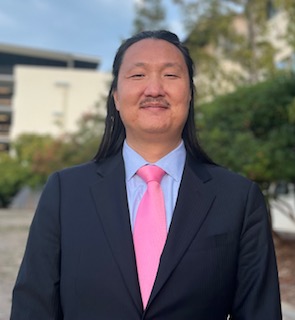The Robert H.N. Ho Family Foundation Centre for Buddhist Studies (Ho Centre) and the Department for the Study of Religion (DSR) at the University of Toronto invite applications for a one-year postdoctoral fellowship (renewable to a second year) in the study of Buddhism. Applicants should hold a PhD in the Study of Religion or a cognate field, awarded May 1, 2023, or later. See below for more details.
We encourage applications from scholars working across a wide range of methods and time periods in Buddhist Studies (broadly defined), with a particular interest in interdisciplinary approaches. The successful candidate, however, must demonstrate sufficient proficiency in teaching Buddhism-related undergraduate courses in the Department for the Study of Religion. The initial appointment is for one year, from July 1, 2026, to June 30, 2027. Continuation into the second year is subject to a performance review; a renewal decision will be made by the end of January 2027.
In addition to conducting research in their area of expertise, the Fellow’s responsibilities include:
- Teaching: 1.0 FCE (two courses) per year, one in the Department for the Study of Religion (DSR) at the St. George Campus and one in Historical & Cultural Studies at University of Toronto Scarborough (UTSC) campus. Opportunities to apply for paid summer teaching may be available for those seeking further pedagogical engagement.
- Ho Centre engagement: Contributing to Ho Centre initiatives, including pedagogy projects and/or public outreach.
- Public programming: Organizing and hosting a major public event, program, or conference of the Fellow’s design, in keeping with the Ho Centre’s mission. The theme and format of this event will be determined at the beginning of the appointment in consultation with the Ho Centre Director.
The Fellow will be provided with workspace, library privileges, and full access to the University’s electronic resources. Postdoctoral Fellows are expected to be in residence and to contribute to the intellectual life of the academic community, including active participation in seminars, workshops, and other events, as well as in activities sponsored by the Ho Centre. The Postdoctoral Fellow will be jointly supervised by a faculty member in the Fellow’s research area (appointed by the DSR Chair) and the Ho Centre Director.
The award is open to both domestic and international candidates. Successful international candidates must meet all Canadian immigration requirements and maintain a valid work permit throughout the term of the appointment.
The Department for the Study of Religion is located at the University of Toronto, one of the world’s leading research universities. Building on the expertise of our faculty and the University’s extensive resources, the Department is uniquely positioned to support critical scholarship and excellence in teaching. We draw students from across the world and are situated in one of the most diverse metropolitan regions in North America, on the traditional lands of the Huron-Wendat, the Seneca, and the Mississaugas of the Credit River.
The Robert H. N. Ho Family Foundation Centre for Buddhist Studies (Ho Centre) promotes excellence in research and teaching in Buddhist Studies across all three University of Toronto campuses and is administered within the Department for the Study of Religion at the St. George campus. The Ho Centre’s programs and events examine how Buddhist traditions have grown and developed, how they have been interpreted and transformed, and how they can be studied with scholarly rigor in a religiously plural environment. Please note that the Ho Centre will celebrate its 10th anniversary in 2026–2027; the Fellow will be expected to contribute actively to anniversary programming.
Salary: $63,000 (plus benefits)
Application Deadline: February 20, 2026
To apply, please send your application with the following information (in a single PDF document) to Tanya Proulx, Chair’s Assistant and Office Administrator, via email: tanya.proulx@utoronto.ca:
- Statement of Interest describing your professional and academic experience and proposed research project. The statement should also outline your plans to contribute to the intellectual life of the Ho Centre and the DSR and include a preliminary idea for a public-facing event/program/conference to be sponsored by the Ho Centre.
- CV
- List of DSR courses interested in teaching and one sample syllabus
- Teaching Statement of no more than 2 pages
- Two Letters of Recommendation (to be sent directly to tanya.proulx@utoronto.ca). If candidate is currently ABD, please make sure the letter specifies a projected dissertation completion date (dissertation defense and final submission must be made before June 30, 2026).
Eligibility to Apply:
The award is open to both domestic and international post-graduates. Successful international candidates must meet all Canadian immigration requirements before taking up the award.
Nominees Must:
- Have completed all requirements for their doctorate degree no earlier than May 1, 2023. (If your career was significantly interrupted after completing your doctorate due to extenuating circumstances, you may qualify for an extension of the eligibility period. Eligible career interruptions may include parental, medical and/or family-related responsibilities, mandatory military service, disruptions due to war, civil conflicts or natural disasters in your country of residence or limited research opportunities due to socio-economic reasons. The eligibility period can be extended by the duration of the eligible delay(s)/interruption(s). “Career interruption” refers to a period of time when you were not working (full-time or part-time) and when your research was completely interrupted. If this applies, applicants should add a section at the end of their CV describing special circumstances and career interruptions.)
- Not hold or be on leave from a tenure-track or tenured faculty position. Generally, “tenure or tenure-track” refers to an open-ended academic position in which the holder can form a research group, apply for externally funded research as a principal investigator and teach.
- Not hold concurrently another major fellowship.
FTE (Full-Time Equivalent):
The normal hours of work are 40 hours per week for a full-time postdoctoral fellow (pro-rated for those holding a partial appointment) recognizing that the needs of the employee’s research and training and the needs of the supervisor’s research program may require flexibility in the performance of the employee’s duties and hours of work.
Employment as a Postdoctoral Fellow at the University of Toronto is covered by the terms of the CUPE 3902 Unit 5 Collective Agreement.
This job is posted in accordance with the CUPE 3902 Unit 5 Collective Agreement.
The University of Toronto is strongly committed to diversity within its community and especially welcomes applications from racialized persons / persons of colour, women, Indigenous / Aboriginal People of North America, persons with disabilities, LGBTQ2S+ persons, and others who may contribute to the further diversification of ideas.
Download PDF of the Call for Applications







